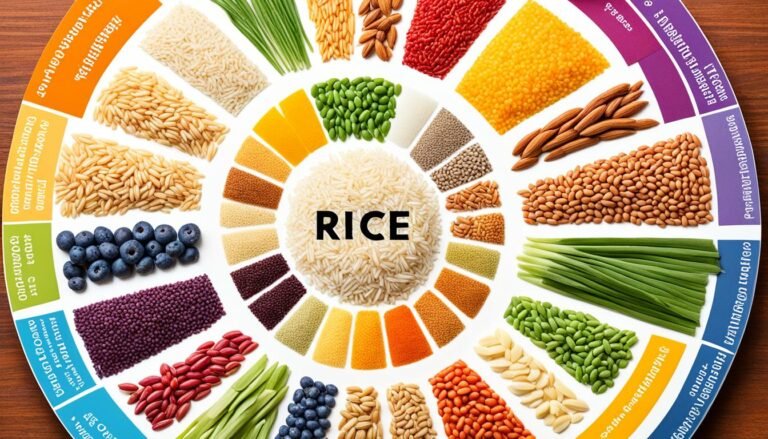Can I eat eggs every day?
Being a busy parent means I look for reliable, affordable foods. Eggs fit the bill perfectly. As a child, memories of my grandma’s Sunday morning scrambled eggs are vivid. Those breakfasts were about more than just eating. They were moments to come together, share stories, and set the tone for the day.
Today, my love for eggs stays strong. I enjoy a fried egg sandwich on hectic mornings or an omelet when time allows. But, information on eggs’ health impact can be confusing. This confusion makes me question if I can enjoy daily eggs without harm.
Eggs have faced a fair bit of controversy. Despite their image as cheap and good for you, misinformation persists. In the past, during the low-fat diet era, eggs were seen as bad. Things changed with the rise of high-fat diets like keto. Now, eggs have a better reputation. They’re inexpensive with great shelf life, staying fresh for weeks. This makes them a great protein option. Adding eggs daily can save money and reduce food waste. Their versatility is unmatched, fitting into various dishes throughout the day. But, are eggs really good for us? And is it safe to eat them daily? This article will delve into these questions.
Key Takeaways
- Eggs are a surprisingly controversial food, with mixed information about their nutritional value.
- Eggs are an affordable, versatile, and long-lasting protein source that can be enjoyed in a variety of dishes.
- The article will explore the health benefits and potential risks of eating eggs on a daily basis.
- Determining the appropriate egg intake for your individual health needs is important.
- Consulting with a healthcare professional can help you make the best decision about your personal egg consumption.
The Nutritional Value of Eggs
Eggs are packed with vitamins, minerals, and great compounds. They have protein, fats, and many vitamins and minerals. This mix gives eggs a strong nutritional value.
Protein and Fat Content
A large egg has 70 calories, 6 grams of egg protein, and 5 grams of egg fat. It also has 2 grams of saturated fat. This blend of high-quality egg protein and moderate egg fat is great for your body.
Vitamins and Minerals
Eggs are rich in vitamins and minerals, like B2, B5, and B12. These help keep your skin, hair, and body healthy. Methionine in eggs is good for your skin, hair, and nails’ health too.
Choline and Antioxidants
Choline is a key nutrient in eggs for cell health and memory. It supports your brain and mood. Egg yolks have lutein and zeaxanthin, important for your eyes and preventing eye diseases.
Can I eat eggs every day?
Eggs are full of vitamins and nutrients, but some worry about cholesterol. An egg has about 207 milligrams of cholesterol. This is 69% of the limit the Dietary Guidelines for Americans suggest. However, eating cholesterol from your diet doesn’t always mean your blood cholesterol rises. Some studies say the link between the two isn’t clear, calling into question the current recommendations.
Eggs and Cholesterol Levels
A recent review suggests that while high-cholesterol foods might raise your heart disease risk, eggs and shrimp are different. Their great nutritional value makes them safe for many people. How many eggs you can eat daily depends on things like your genetics, family history, diet, and health condition.
Individual Differences in Egg Consumption
How many eggs are okay to eat each day varies from person to person. It depends on your genetics, family history, diet, and health. Some folks won’t see much change in their cholesterol from daily egg eating. Others might need to cut back to protect their health.
Egg Intake and Heart Health
Studies show eating eggs might not up your heart disease risk. This is despite earlier concerns linking eggs to high cholesterol and chronic diseases. For some groups, like those with high LDL cholesterol, eating fewer eggs could be wise. They might want to stick to only one egg a day or 4-5 eggs each week. This advice could help lower their risks.
Egg Yolks vs Egg Whites
Many choose to eat the egg whites only. Why? Because most of the cholesterol is in the yolk. Egg whites offer a cholesterol-free source of protein. Yet, the yolk contains important nutrients like iron, vitamin D, and antioxidants.
Moderation and Overall Diet
How much you eat eggs also matters with what else you eat. If you have high cholesterol or several risk factors, limiting eggs is smart. Focus on a diet full of fruits, veggies, whole grains, and lean meats. This can be the best choice for your heart health.

Recommended Egg Intake
Healthy adults with normal cholesterol levels may enjoy 1–2 eggs per day. This range can support heart health. But, it’s important to watch your intake if you’re at risk.
If you have high LDL cholesterol, are overweight, or have diseases like diabetes, eat fewer eggs. For you, enjoying no more than 1 egg daily or 4–5 per week might be better.
For Healthy Adults
A healthy adult with normal cholesterol levels might find 1–2 eggs per day good for their heart. Some studies suggest it could be safe and beneficial.
For High-Risk Groups
If you’re at higher risk due to conditions or family history, be cautious. It’s advised to stick to 1 egg per day or 4–5 weekly. But, it’s best to check with a healthcare provider to tailor advice to your health needs.

Conclusion
In wrapping up, experts haven’t quite nailed down the perfect eggs diet. They agree eggs are full of good stuff we need. But, deciding how many to eat daily changes from person to person. This depends on your cholesterol level, health issues, and family health history. Most people can enjoy 1-2 eggs daily. But, those worried about heart problems should think about eating no more than 4-5 eggs weekly.
It’s smart to talk with your doctor or a health expert to figure out your perfect eggs plan. Knowing the health benefits and risks of too many eggs helps you choose wisely. Then, eggs can easily become a key part of your healthy diet.
It’s all about finding the right balance for you and listening to professional advice. With this info in mind, eggs are a great addition to any balanced diet.






